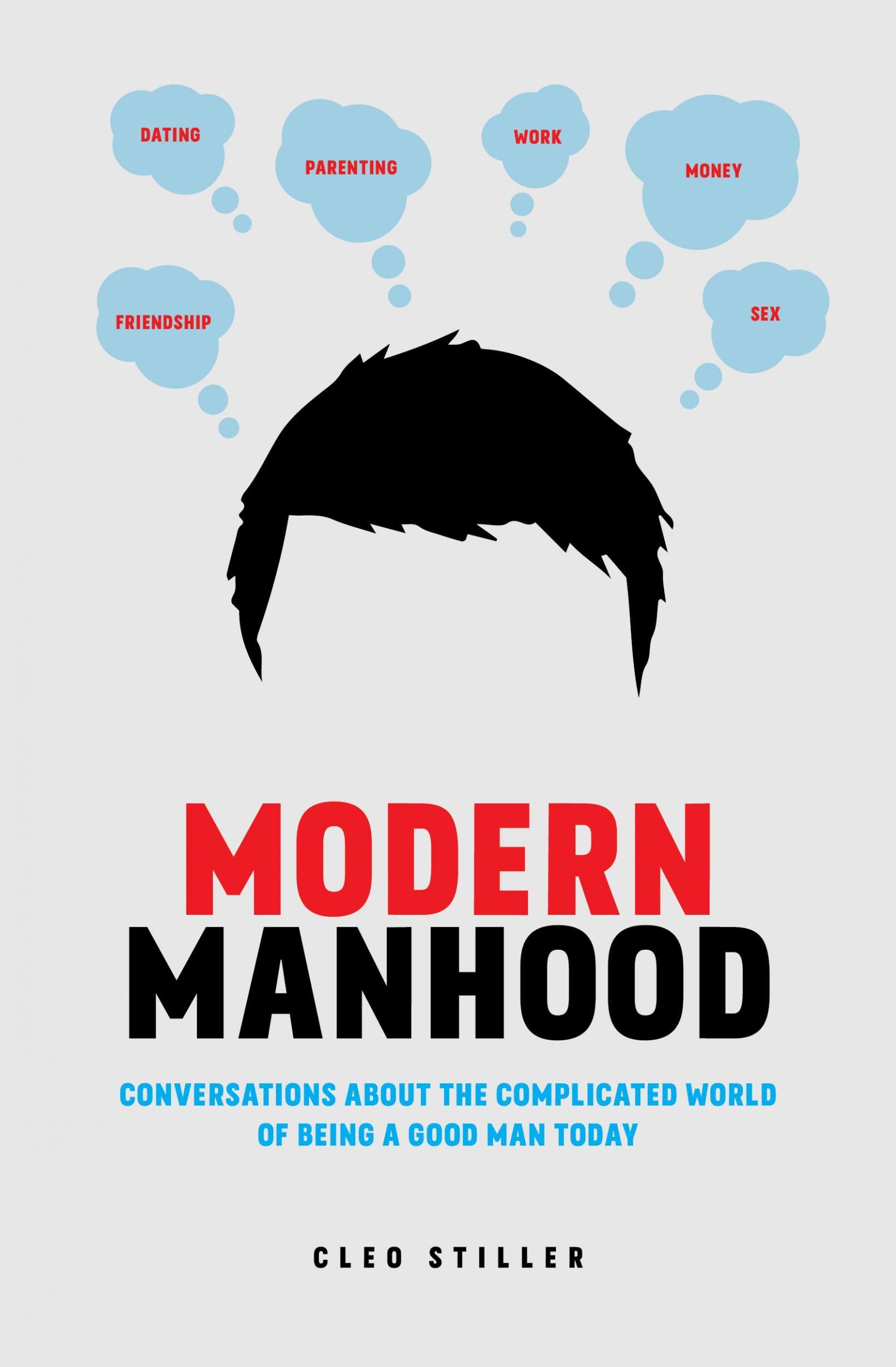‘Everyone is afraid of being the next Aziz Ansari’: How Cleo Stiller is re-educating men in a post-MeToo era
The Emmy Award-nominated TV host speaks to Olivia Petter about modern masculinity, gender stereotypes and dealing with ‘locker room’ talk


Your support helps us to tell the story
From reproductive rights to climate change to Big Tech, The Independent is on the ground when the story is developing. Whether it's investigating the financials of Elon Musk's pro-Trump PAC or producing our latest documentary, 'The A Word', which shines a light on the American women fighting for reproductive rights, we know how important it is to parse out the facts from the messaging.
At such a critical moment in US history, we need reporters on the ground. Your donation allows us to keep sending journalists to speak to both sides of the story.
The Independent is trusted by Americans across the entire political spectrum. And unlike many other quality news outlets, we choose not to lock Americans out of our reporting and analysis with paywalls. We believe quality journalism should be available to everyone, paid for by those who can afford it.
Your support makes all the difference.In January 2018, Cleo Stiller began to receive hundreds of messages from men on Twitter, each one with a similar question about #MeToo. These weren’t the usual cries from misogynists lamenting how they could no longer speak to women without risk of accusation, instead they were from men who genuinely wanted to adapt their behaviour and ensure they were being as respectful as possible to the women in their lives.
As an award-winning health reporter and the creator of Peabody-nominated relationships TV show, Sex.Right.Now, Stiller had become used to getting these messages about #MeToo, following the The New York Times’ publication of allegations of sexual assault against the now-disgraced Hollywood producer Harvey Weinstein.
But the volume of these queries surged when an article about comedian Aziz Ansari published by Babe.net went viral. In the now infamous – and polarising – article, a woman described how she felt pressured into sex during a date with Ansari. He insisted everything that happened between them was consensual, but many men who read the article felt compelled to contact Stiller and explain how the encounter described made them question their own sexual conduct.
“After that, the men I spoke to seemed very confused,” Stiller says. “A lot of them were trying to reckon with their own behaviour. Some were parents who had just had sons and wanted to know how to raise them right while others questioned ideas of chivalry and nobility.”
Instead of replying to each man individually, Stiller decided to write a book, Modern Manhood: Conversations about the complicated world of being a good man today, in which she could shed light on how to navigate areas such as workplace relationships, consent and pornography. To do this, Stiller interviewed nearly 100 men, women and non-binary people of all ages, ethnicities and sexualities. Questions raised in the book include: when does your office flirt become inappropriate? Do men still have to pay for dates? How can I teach my son about consent?
“These are questions our whole society is dealing with and I certainly couldn’t answer them myself,” Stiller says. “So I needed to speak to a lot of people.”
Many of the questions addressed in Stiller’s book seem like they have obvious answers. And at times, it feels as if the book aims to educate men by patronising them, consequently removing culpability. This is a criticism Stiller is used to hearing. “I’m not worried about Modern Manhood being perceived as belittling men because the book is entirely compiled by the perspectives of the men, in addition to the women and non-binary people I interviewed for the project,” she says before clarifying that the book is not about her offering advice. “It offers different perspectives from men of all backgrounds about how they are handling each specific situation, coupled with experts who work in the relevant field.”
Stiller continues by explaining that to turn your nose up at the questions asked in the book would be to miss its point entirely. “When a man expresses fear of being ‘the next Aziz Ansari’ or behaving in a way that could be described as ‘creepy’, it would be easy to scoff and rule them out as part of the problem. And I get it. We’re so angry and these conversations are all overdue, but we can’t do that. Because we have people walking around thinking they’re being a good guy and they’re only just learning they’re not.” Stiller stresses that people should “come from a place of compassion” and be willing to open up a discussion with those who might be ignorant towards issues surrounding #MeToo, because those are the conservations that will amount to tangible change.

Take what Donald Trump referred to as “locker-room talk”, for example. This, Stiller says, is a common but problematic way of speaking that has been normalised. “Men have all heard their male friends make misogynistic comments that they might’ve brushed off in the past, but that’s no longer okay,” Stiller says. “And it’s a major conversation at the moment, partly because of our president.” While it might seem like the most obvious way to prevent this kind of rhetoric is to call it out immediately and explain why it’s abhorrent, Stiller argues that taking a more tacit approach could be more effective.
Many of the men she spoke to while writing the book wanted to challenge people when they felt something a friend said was sexist, but were concerned about the risk of losing that friend. “The thing that underlies that is the question of why do men talk like that?” Stiller explains. “Boys get taught from a very young age not to need their friends or open up to them in the same way the girls would. This is notable in high school.”
“Stiller goes on to reference the research of Niobe Way, a professor of applied psychology at New York University who spent 30 years looking at the ways in which men communicate with one another through adolescence and how this changes as they get older. “When they’re 14 years old they can easily identify who their best friend is, but this slowly starts to dissipate and by the time they reach 18, they can’t identify a best friend. Instead, they refer to their ‘pals’ or ‘bros’ and when asked about the conversations they have with them, it’s mostly about who they’re sleeping with and what sports they’re playing. It’s superficial, but this then becomes the way that men bond.” With this in mind, when a male friend makes a sexist remark, Stiller advises avoiding accusatory language that will just encourage them to be defensive. “Instead, flip their comment around and say something like, “I don’t really like talking about that kind of thing but how are you doing? How is your family? Take it upon yourself to have a more in-depth conversation.”
Again, this could be another instance in which the reader could infer that Stiller is taking a patronising approach by implying some men are incapable of recognising inappropriate language. But Stiller explains her advice runs deeper than simply presuming the man you’re speaking to doesn’t understand what he’s saying. “It’s about trying to unpack what they’re really trying to communicate and using language that will encourage them to open up as opposed to simply putting them down,” which Stiller says could be counterproductive. This approach is more likely to encourage self-reflection, she explains. “In short, call your friend up, instead of out,” Stiller adds, citing the advice of Bryan Stacy, a life coach and co-host of the podcast of The Great Man Within, which explores contemporary views surrounding masculinity.
Stiller’s book is packed with helpful advice and insightful research, but given its title and its contents, the kind of readers it will appeal to (presumably people who already hold progressive views and are eager to learn more) are unlikely to be the ones who really need it. “That’s not ideal,” Stiller says of this predicament. “But from having written this book I am hopeful that there is a large portion of the population that is becoming more thoughtful and reflective of their behaviour.” Maybe they’re more aware of power dynamics in the office, so they’re going to stop complimenting female colleagues on their appearance, she suggests. Or perhaps they’re going to treat their partner in a way that is more thoughtful and reflective of what’s at stake in their relationship. Those micro changes can make a massive difference eventually. And when they start happening on a massive scale, that’s the change we need, that’s where we need to go.”
Modern Manhood: Conversations About the Complicated World of Being a Good Man Today by Cleo Stiller is out now.
Join our commenting forum
Join thought-provoking conversations, follow other Independent readers and see their replies
Comments